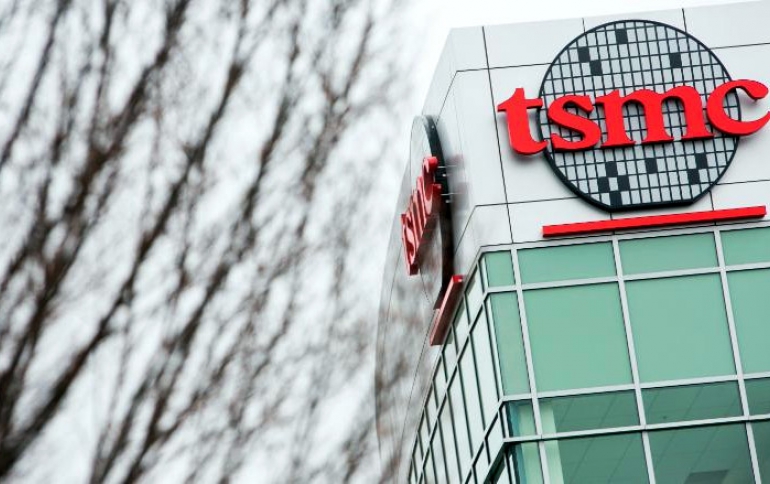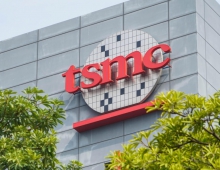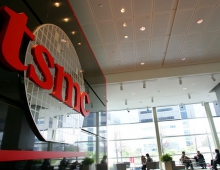
TSMC Expects Weak Quarter as Smartphone Demand Remainss Slow
Taiwan Semiconductor Manufacturing Co. is predicting weak quarter for revenue growth, as the chipmaker grapples with global smartphone market slowdown.
The world’s largest made-to-order chipmaker is predicting revenue of $7.55 billion to $7.65 billion in the June quarter, versus an average estimate for $7.6 billion and little changed from a year earlier. On Thursday, TSMC reported a larger-than-anticipated 32 percent plunge in net income during the January to March period.
The company is a proxy for global technology demand as its clients include iPhone maker Apple Inc, Qualcomm Inc and Huawei Technologies Co Ltd.
It also forecast gross margin for the second quarter of 43 percent to 45 percent, while operating margin will be 31 percent to 33 percent, compared with 47.8 percent and 36.2 percent a year earlier, respectively.
Revenue should grow “slightly” over all of 2019 thanks to the typical launch of new smartphone models ahead of the holiday shopping season, Chief Executive Officer C. C. Wei said.
Net income fell to NT$61.4 billion ($2 billion) in the three months ended March, the Hsinchu, Taiwan-based company said.
The company is expected to gradually recover from sluggish smartphone sales in coming months and new demand including for devices equipped with fifth-generation (5G) communications technology.
The Taiwanese chipmaker’s output in the past quarter was affected by a chemical contamination incident that led the company to cut its guidance, just a few months after a virus disrupted production. For 2019, TSMC is sticking to its plan for $10 billion to $11 billion in capital spending.
In the first quarter, shipments of 7-nanometer accounted for 22% of TSMC's total wafer revenue and 10-nanometer process technology contributed 4% while 16-nanometer accounted for 16%. Advanced technologies, defined as 16-nanometer and more advanced technologies, accounted for 42% of total wafer revenue.
“In the first quarter, our business was impacted by the overall global economic condition which dampened the end market demand; customer inventory management to digest excess inventory in the semiconductor supply chain; and high-end mobile product seasonality. Meanwhile, the net effect from the photoresist defect material incident also impacted our first quarter revenue by about 3.5 percent,” said Lora Ho, SVP and Chief Financial Officer of TSMC. “While the economic factor and mobile product seasonality are still lingering as we move into second quarter, we believe we may have passed the bottom of the cycle of our business as we are seeing demand stabilizing.





















